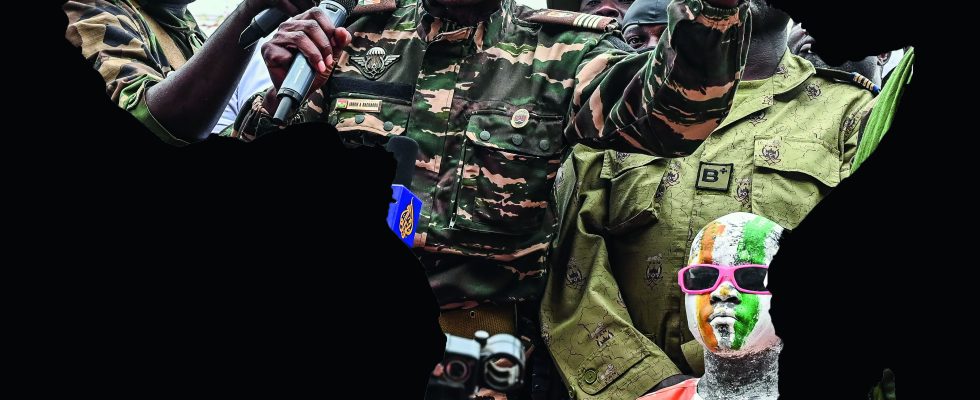Is it a note of a few pages, with the evocative title: “‘The pangolin effect’, the storm that is coming to Africa”? As the former Prime Minister of Benin Lionel Zinsou says, this document, from the Quai d’Orsay Analysis and Forecasting Center in the midst of the Covid epidemic, already sketched out the scenarios of the upheaval at work on the continent. “The coming shock wave of Covid-19 in Africa could be too much of a blow to the state apparatuses”, predicted the document in the spring of 2020, which ended with this advice: “Anticipating the discredit of political authorities means urgently supporting the emergence of other credible African authorities to address the peoples.”
But whether in Mali, Guinea, Burkina Faso, Niger or Gabon, the urgency was such that there was no support, and the only credibility of the new authorities is that kepis and fatigues. Of course, the palace revolutions in Niamey and Libreville caused amazement in Paris and in the African capitals where everyone wonders: whose turn it is? Admittedly, the situations have little to do between, on the one hand, the overthrow of Mohamed Bazoum, the democratically elected president of Niger, who undoubtedly paid the price for his reforming zeal, and, on the other, the ras – the bowl of an entire Gabonese people disgusted by the seizure of power by part of the Bongo family.
But for the former colonial power, which has been striving for a long time to break with the backward-looking canvas of Françafrique, these putschs also indicate an endgame. That started more than thirty years ago by François Mitterrand, who, in his famous speech at La Baule, intended to promote democratization efforts in the countries of what was then called “the African field” in exchange for aid French. From disillusionment to renunciation, it was France that ended up leaving the field, with its soldiers, its expatriates, its banks and its companies, replaced by other actors with sometimes less noble projects. Emmanuel Macron tried to record this end of the chapter by outlining a more global partnership between the North and the South. The summit for the new financial pact last June in Paris symbolized this change of era. But to start a partnership, it takes several people. But France is quite alone, and its voice carries less.
